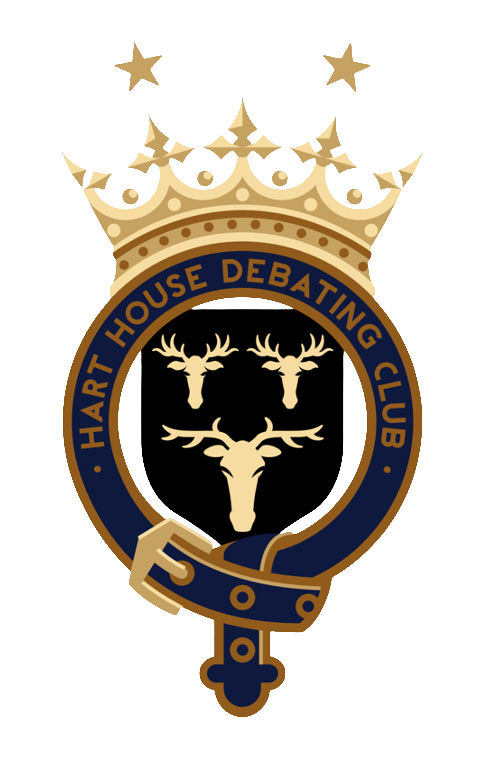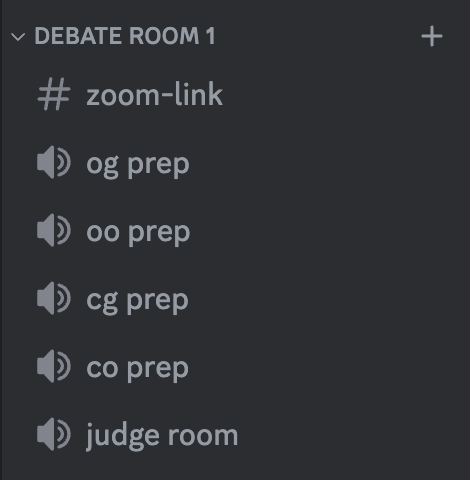RUNNING TOURNAMENTS 101
-
Things to consider BEFORE running a tournament
-
Looking at the big picture
-
Who and where to tell people your tournament is happening
-
Preliminary reg and participant info, tracking registration and payments
-
Creating and managing your tournament budget and other financial resources
-
OrgComm Duties and IA Hiring
SO YOU’VE DECIDED TO HOST A TOURNAMENT….
PREFACE: Tournament Directing - Where to begin
Consider: online or in-person tournament?
Online: easier to run, easier to find IAs and OrgComm, more debaters usually interested, lower cost to run with a higher profit margin.
In-person: More fun, but more logistically challenging to find personnel, get interest, and host.
Will incur additional room booking, food, awards, orgcomm travel costs.
May have unexpected costs.
Consider: what is the goal of the tournament?
Is it to make a profit? Fundraise for charity? Raise funds for a debating club? Or just for fun?
Team cap, number of judges required, registration fees will depend on your goals.
Consider: who do you want to help run the tournament?
Usually a good idea to ask personal connections to be OrgComm – you work better with people you know.
Can also create applications for OrgComm (especially junior/training positions like Jr Tabs), and select from a group of motivated applicants.
Making a Plan
For large tournaments, it is a good idea to make a shared schedule to delegate all OrgComm tasks, and set specific deadlines
TD duties: forms, logistics, food orders, budgeting, general administrative tasks like answering emails.
Tabs duties: create tab, input data, confirm clashes, make break and awards slideshows.
Equity duties: create equity briefing and various equity forms (e.g Accessibility), check over CA motions.
CA duties: brainstorm and test motions, recruit IAs, create and score judge tests (if applicable), rank adjudicators, slot judges during the tournament, perform judge checks, decide break eligibility requirements.
Notifying People of your Tournament
Make a Facebook Page
Making a Facebook event page is the first step to letting everyone know you are hosting a tournament. It’s pretty self-explanatory, create an event and add key invite information in the description section.
Your tournament Facebook page can be updated as you get more information about your schedule, logistics, and members of your OrgComm.
Write a Tournament Invitation
Your tournament invitation should include:
Team Cap: the maximum number of teams that can attend your tournament. Will depend on your judging capacity and space capacity (for in-person tournaments).
Registration fees: Cost per team, cost per judge.
Waivers: availability, conditions, and process to access waivers.
Judge requirements: Will depend on your internal judging capacity. Typically n-1 or n-2.
Breaks: The number of outrounds (octos, quarters, semis, etc.) the tournament will have and the outround categories (ESL, Novice, Open).
Awards: Whether your tournament will have awards.
Venue: Where your tournament will be hosted and how to access these venues.
Basic navigation instructions: A campus map, nearby bus stops, etc.
Accessibility: Which entrances have ramps? Does the building have elevators? Gender-neutral washrooms?
Update Debating Calendars and Groupchats
Notify people on all the places people commonly look for tournaments! This includes calendars and Facebook Debate groups and groupchats.
Calendars
CUSID Tournament Calendar - pinned to the CUSID Facebook Page
Groups
Institutional Contacts
Ask friends to reach out to people from their institutions and post in their discords.
Message the heads of debate clubs that might be interested in your tournament.
Budgeting
Create a spreadsheet with tabs for revenue, expenses, and reimbursements/invoices. Template can be found here. Depending on the size of your tournament, you may want to publish a public budget.
Forecast revenue by multiplying number of debaters registered by the registration fee (minus waivers).
Forecast possible expenses (always overestimate): External orgcomm compensation, Tabbycat fees, food costs, room booking costs.
Provide your budget to the relevant directors (E.g. tell your foods director the foods budget, the socials director the social budget, etc).
Allocating the Budget
Reimbursements
Make a list of who is eligible for reimbursements. Generally this will be external Orgcomm and internal members purchasing supplies, food and trophies.
Be sure to check with your school administration (if applicable) what you need to process the reimbursements. Some schools require that you generate invoices for each person you are reimbursing, others has specific forms that need to be filled out.
The most common information you will need to collect is:
Name, email, phone number
Institution
Address
Preferred method of payment
IBAN/SWIFT # (for international bank transfers)
Bank address (for international bank transfers)
Explain clearly to people how they will be reimbursed.
Format: Paypal, cheque, bank transfer, e-transfer, etc.
Timeline: How long will it take them to get their money?
Logistics
In Person Tournaments
There are many things to think about when you are hosting an in-person tournament. Here is a detailed breakdown of the most common things you will need to think about.
Appointing Internal Directors
It’s a good idea to have multiple logistical/internal directors helping you manage the tremendous workload that comes with running an in person tournament. The most common logistical directors are:
Foods Director: Corresponds with and finds catering, arranges food delivery and storage.
Runners Directors: Scouts volunteers to direct people to their rooms, collecting and setting up foods, any room set-up that must be done.
Registration Director: Checks people in on the day of, manages human traffic, directs people to the correct locations at the beginning of the day.
Housing/Billeting Director: Arranges for club members to offer up their homes for out-of town debaters to stay at, coordinates hotel block (if tournament chooses to have one).
Check with your university what the process is like for booking and reserving rooms for use. Most of these need to be booked well in advance. For room bookings:
Room Bookings
You should indicate on your tournament invitation whether or not your tournament will be providing awards. Make sure to order these in advance (check the timelines for your local award shops).
The following awards are standard for an in-person tournament. Please note that the awards may vary depending on the break categories and institutional capacity. For example, smaller tournaments run by schools with less funding may offer less expensive awards such as certificates, medals, or other commemorative items instead of plaques or trophies.
Awards
Certificates: Novice Semifinalists/Finalists, Open Quarterfinalists, Speaker Awards (at smaller tournaments)
Medals: Speaker Awards including top Open (10), Novice (5) and ESL (3)
Plaques: Open Quarter/Semi/Finalists, Novice Finalists, ESL Finalists
Trophies: Grand & Novice Champions
Catering: Generally, pizza or some type of wrap or sandwich store will be your best bet for a cheap meal that feeds a lot of people. Do a search of local fast food chains and see what deals they can offer. There are usually catering services associated with the chain that allow you to purchase food for conferences at a lower price.
Meal set ups: Be sure to have runners or volunteers on standby to set up for meals. Crucially you want to remember to consider:
Whether the place you have ordered from does delivery or if you need volunteers to go pick it up
Providing utensils (plates, napkins, etc)
Food options for people with dietary restrictions that cannot be accommodated for on a broad basis (i.e. people with nees more complex than vegan, vegetarian, gluten free)
Food storage: Think about where you will store leftovers or excess supplies (napkins, paper plates, etc.) The easiest way to get rid of extra food is to send it home with participants. For extra plates and things, make sure that your club either has a storage space or someone from your institution can store them for your next event.
Food
Billeting is where you have internal club members offer up their homes for people coming to your tournament to crash. There is no requirement that the billet have beds or couches, but you should be clear about what will be available. Billets should be prioritized for smaller schools or people coming from further away.
Recruiting people to billet: encourage your club members to billet through announcements at club meetings and on your shared communication platforms (i.e. Discord.) This can be done through a form. If there is a severe lack of billeting for a tournament that requires more crash space, consider reaching out individually to club members that have not signed up yet.
Transparency: remember to be upfront about what your billeting capacity is. If most people are unlikely to receive a billet, please inform people early on so they can make an informed choice about whether they can attend the tournament.
Housing
Hotel blocks are falling out of style as most schools prefer to arrange their own accommodation through Airbnb, which is usually cheaper. However, hotel blocks are still sometimes used for larger tournaments.
To book a hotel block, call local hotels in your area and see what their prices are to set up a block and what types of rooms they have. Be careful when signing contracts as they sometimes need all the names for people staying in the hotel block by a certain date that may not work with your tournament deadlines.
Virtually every online tournament is run over Discord and Zoom. Zoom rooms are used for opening remarks, debater and judge briefings, break announcements and awards announcements since Discord has a limited number of people who can view the stream. Online rooms for debating may be on Discord or in breakout rooms from the Main Zoom(s). Zoom debate rooms are better for international tournaments as some countries block video calling or speaking on Discord.
When creating your tournament discord, make sure you have separate sections for announcements, draws/motions, motion clarifications, important forms, role selection, etc. To make debate rooms on Discord, group channels together to form a “room.”
Please use the below template for a pre-made tournament Discord server.
Online Tournaments
Day-of Tasks
Set up
If in-person, arrive 30-60 mins early to ensure rooms are available, tech is set up, OrgComm is ready to check in debaters.
If online, be online at the start of check-in to keep an eye on things.
Opening and closing remarks
Opening remarks: Introduce OrgComm and briefings.
Closing remarks: Thank judges, debaters, OrgComm.
Teardown
As the tournament director, you will be the last one to leave. Check that all supplies have been packed up, that the space is reasonably clean, and collect any lost and found items that may have been left behind.
OrgComm & IAs
The OrgComm, in addition to the TDs, is made up of 3 teams: The Chief Adjudication Panel, Tabs, and Equity
Chief Adjudicator (CA)
Motion setting
Judge recruitment, creation of judge test (where applicable) and judge scoring/ranking. CAs will also manage the IA budget provided by the TDs).
Deliver Debater and Judge briefings
Determine break eligibility requirements (# of rounds required to break, what constitutes nov status, etc).
Slotting panels during the tournament
Releasing motions and answering motion clarifications
Checking judges and reviewing feedback to determine which judges should break to outrounds
Tabs
Coordinate with TDs to collect participant information and import it to the tab
Send out mass emails with relevant links including:
Private URL
Discord
Equity Policy & Accessibility and Clash forms
Make a tab changes form and monitor tab change requests
Input clashes
Confirm ballots and generate draws
Create the break and awards slideshows
Monitor the tab redaction form (for speakers to anonymize themselves on the tab) and publish the tab after all tab redactions are complete
Equity
Creating the equity policy (see: Yale IV 2023 Equity Policy)
Delivering the equity briefing (see: Tournament Equity Briefing Template)
Releasing and monitoring the clash and accessibility forms
Coordinating with the TDs to determine room accessibility (which rooms are within walking distance, can be accessed by wheelchair, have ramps, etc)
Providing a list to of accessible rooms and people with accessibility constraints to tabs
Hear equity concerns on the day of and mediate equity situations by determining appropriate next steps (i.e. giving warnings/public announcements, private conversations, deciding removal from tournament or break ineligibility on the basis of equity concerns
Overseeing the OrgComm
Be open and transparent with expectations for OrgComm in terms of deadlines and any additional tasks they should be aware of
Create OrgComm groupchats/other communication platforms (e.g. discord channels). These may include:
Equity + TDs
Tabs + TDs
CAs + TDs
Equity + CAs
Equity + Tabs
Full Orgcomm
Check in with OrgComm teams regularly to make sure things are on track, especially with less experienced Org teams. This will be especially true of internal high school tournaments
Independent Adjudicators (IAs)
Independent Adjudicators are external adjudicators you may want to hire if your tournament has a shortage of judges or does not have enough chair-level adjudicators. When hiring IAs you want to consider:
Your budget : How many IAs do you want to hire with the budget that you have?
Timeline: The sooner you publish the application, the more likely you are to attract IAs, especially if your tournament is in person and you need them to travel
IA applications can be posted on the CUSID Facebook page or in Judging and Paid IAship Offers
Application: Typically, IA applications ask for
5-10 Top Speaking Achievements
5-10 Top Judging Achievements
Requested subsidy amount
Additional comments
Resources
Registration
Payment/Reg Tracking Template: HH Summer Split Payment/Registration Status
Financials
Payment/Reg Tracking Template: HH Summer Split Payment/Registration Status
Budget Template: Tournament Budget Template
Institutional Knowledge
Please reach out to any of the following contacts if you have additional questions. They have vast amounts of institutional knowledge and are all incredibly happy to help out.
CA and TDing
Please reach out to us through email at harthousedebate@gmail.com
Tabs
Séb Dunne Fulmer: Creator of Tabtastic, Madrid WUDC 2023 Tabulations Officer, NAUDC 2021, Nepal Austral 2021 Tabs Director
Étienne Beaulé: Creator of TabbyCat. Vietnam WUDC 2024 Tabulations Officer
Valerie Pang: Former Zagreb EUDC 2022 and Bates NAUDC 2023 Tabulations Officer, HHIV Chief Tabulations Officer
Equity
Shudipto Ahmed: Belgrade WUDC 2022, Madrid WUDC 2023, Nepal 2021 & Campbelltown 2022 Australs Equity Officer
Wajeeh Maaz: Vietnam 2024 Equity Officer, LSE Open, Yale IV Equity Officer
Varun Lodaya: 2023 CUSID National Ombsbudperson














